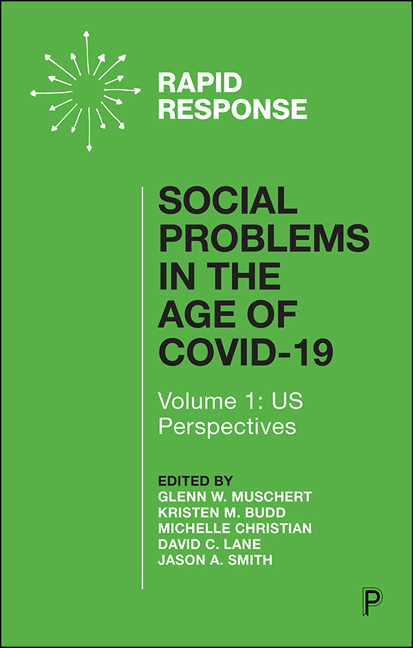9 - Inequality in Isolation: Educating Students with Disabilities during COVID-19
Published online by Cambridge University Press: 23 March 2021
Summary
The Problem
COVID-19 has forced all facets of daily life to shift. This has been particularly difficult for institutions like schools that depend on in-person, daily instruction. Across the United States, students, their families, schools, and districts have had to scramble to ensure instruction continues. With little precedent, responses have varied greatly, leaving the potential for unequal provision. In particular, the national patchwork of responses to the pandemic has exacerbated the uneven provision of special education in the US, potentially increasing the achievement gap between students with disabilities and their general-education peers, and contributing to academic and social regression.
Students with disabilities (SWD) in the US are guaranteed rights under various federal and state laws, including the Americans with Disabilities Act (ADA), Section 504 of the Rehabilitation Act of 1973 (Section 504), and the Individuals with Disabilities Education Act (IDEA). The latter mandates that a “free appropriate public education” and related accommodations, supports, interventions, and services be provided to SWD. Federal and state legislatures and courts have repeatedly found such rights under IDEA to be mandatory and non-negotiable, even when difficult or expensive to provide. At the end of April 2020, the US Department of Education sent a report to Congress reaffirming the rights of SWD to have equal access to education during the COVID-19 pandemic. The report stated that the Department would not request waiver authority to give school districts the option to forgo critical provisions of IDEA. IDEA, however, does not address how schools should respond during crises like COVID-19, leaving states and districts to decide how to deliver special education to SWD. Some districts initially refrained, only changing course when the federal government dictated so, from providing online instruction to any students during the closure, thus skirting the requirement to provide special-education services during the same period. Other districts, including over 30 in New Jersey, asked parents to sign waivers releasing any claims of liability under IDEA as a condition of their children receiving special-education services during COVID-19— a violation of state and federal law. Other districts have elected to provide distance instruction and services.
- Type
- Chapter
- Information
- Social Problems in the Age of COVID-19 Vol 1Volume 1: US Perspectives, pp. 91 - 100Publisher: Bristol University PressPrint publication year: 2020



